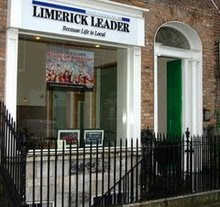
Whisper it, but I have a problem. And no, it’s not a problem which requires the attention of a GP. Actually it’s far more serious: I can’t decide on what NFL team I should support!
I got into the NFL, at first, for gambling reasons, but now I regard myself as a ‘fan’. Thing is when an online acquaintance, or even one of the lads asks me, which franchise I ‘support’ I find myself looking down and shuffling my feet awkwardly.
Now I did spend some time working in Boston, but there’s no way I’m going to just jump on the bandwagon and start supporting the New England Patriots - that strikes me as pure opportunism. It’s always nice to find yourself supporting a winning team, but it feels a little too much like cheating to me.
Personally I’m a bit of a masochist, so if I’m going to follow an NFL team I want to feel the pain of defeat, before the triumph of victory. I don’t want to win an imaginary Super Bowl ring immediately, but, you understand, I want to win one some time.
Now, I’ve done some ‘scouting’ (hope you like the Americanism) and the Green Bay Packers could be the team for me.
The Pack do enjoy a storied history in the game (Super Bowl champions in 1967, 1968 & 1997 - won nine NFL championships prior to the Super Bowl era), but there’s also something intriguing about them.
The Packers, according to Wikipedia at any rate, represent the last vestige of the small town team (now we’re talking) that were once common in the NFL during the 1920s - they are the only non-profit, community-owned major league professional sports team in the United States - I’m an ardent fan of FC Barcelona (also owned by supporters) so Green Bay sound like the team for me.
The Brett Favre factor - Favre, my favourite NFL player, played for the Packers in 271 consecutive games before announcing his retirement last season only to then file for re-instatement and end up playing with the bloody New York Jets. I like the element of pathos there.
Ah, now I think I have the clincher. Working in the states in 1996 I went to a pre-season game in Boston involving the Packers and the Patriots. Now I’ve already stated that the Patriots are not for me, but 13 seasons ago Brett Favre led Green Bay to a 35-21 defeat of the Patriots in Super Bowl XXXI.
That’s it I have it, and unless you can convince me otherwise, I’m going to be calling myself a cheesehead, often used to refer to people from the state of Wisconsin in general, from now on - well on Sunday evenings at any rate.
Brian McDonnell









